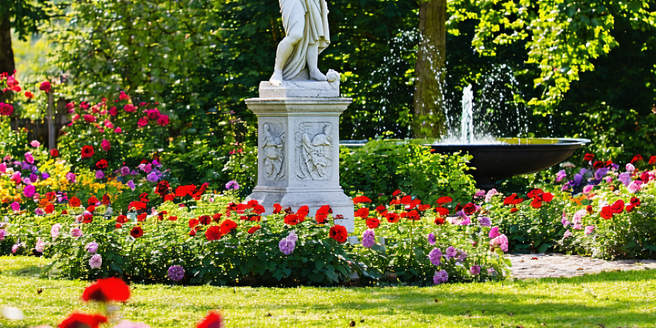
Understanding Libra and Its Symbolism
| Aspect | Description | Symbolic Representation |
| Element | Air | Intellect |
| Ruling Planet | Venus | Harmony |
| Symbol | Scales | Balance |
| Zodiac Period | September 23 – October 22 | Autumn Equinox |
| Strength | Diplomacy | Peace |
| Challenge | Indecisiveness | Consistency |
The Importance of Balance in Life
Balance is essential for a fulfilling life. It provides a sense of control and stability, allowing us to manage stress effectively. When life becomes overwhelming, balance helps us to prioritize and allocate time to various aspects of life efficiently. By maintaining a balance, we can enjoy personal growth, enrich relationships, and achieve success in both personal and professional domains. It prevents burnout and promotes mental well-being, which are crucial for a healthy lifestyle. Achieving a balanced life involves setting boundaries, making mindful choices, and being intentional with our actions. It involves understanding the importance of rest and activity, work and leisure, giving and receiving. Ultimately, balance helps us remain resilient in the face of challenges, making us adept at handling crises while maintaining our integrity and peace of mind.
Physical Exercises for Body Balance
Achieving physical balance is crucial for overall health and stability. Incorporating exercises that target body alignment and coordination helps improve core strength, reduce the risk of falls, and enhance posture. Activities like yoga and tai chi help increase body awareness and flexibility, promoting balance. Practicing balance-specific exercises such as standing on one leg, performing heel-to-toe walks, and using balance balls can significantly enhance stability. These exercises engage the core muscles, supporting spine health and reducing back pain. Consistent practice not only improves balance but also boosts confidence in physical abilities, making daily activities more manageable. It’s important to start with simpler exercises and gradually increase complexity as your balance improves. Stick to a regular routine, and prioritize safety by ensuring exercises are performed on a stable surface to prevent injuries.
Mental Practices to Find Equilibrium
Maintaining mental balance is vital for emotional health and stress management. Practices such as meditation and mindfulness are powerful tools in achieving mental equilibrium. Meditation encourages a calm mind and helps in processing thoughts and emotions without judgment. Setting aside a few minutes each day to meditate can drastically improve focus and emotional resilience. Mindfulness, on the other hand, keeps you anchored in the present moment, reducing anxiety and enhancing your ability to cope with stress. Engage in activities that stimulate your mind, such as reading or puzzles, to maintain mental agility. Journaling is another productive practice, allowing you to articulate thoughts and feelings, bringing clarity and balance. Balancing mental activities with relaxation aids memory retention, creativity, and emotional intelligence. It’s crucial to create a routine that includes ample rest, reflection, and relaxation to maintain mental harmony.
Nutritional Tips for a Balanced Diet
A balanced diet forms the foundation of a healthy lifestyle. Incorporating a variety of foods in moderation ensures that the body receives all essential nutrients. Focus on adding fruits, vegetables, lean proteins, and whole grains to your meals for a well-rounded diet. Monitor portion sizes to avoid overeating, and choose fresh, whole foods over processed items. Hydration is equally important, so drink adequate amounts of water throughout the day. Limit intake of sugary drinks and snacks to maintain energy levels and prevent health issues like obesity and diabetes. Consider meal planning to ensure balanced meals and reduce last-minute unhealthy food choices. Mindful eating, where you focus on the meal without distractions, helps in recognizing hunger and fullness cues. Educate yourself on nutritional labels and make informed food choices to support body functions and overall well-being.
Achieving Work-Life Harmony
Balancing work and personal life is crucial for overall well-being and productivity. Set clear boundaries between work and leisure to avoid burnout. Allocating specific time slots for work and personal activities helps in prioritizing essential tasks and reduces stress. Embrace flexible working options if possible, to manage responsibilities more effectively. Regularly evaluate your priorities to ensure adherence to your goals and values. Taking breaks is vital to refresh and rejuvenate, leading to improved efficiency at work. Engage in hobbies or activities outside of work to unwind and boost creativity. Communicate openly with your employer and loved ones about your needs and boundaries for better support. Practicing self-care and stress-management techniques, such as exercise and meditation, can aid in building resilience against work pressure. Strive to cultivate a supportive environment both at home and work for a harmonious life.
Mindfulness Techniques for Emotional Stability
Mindfulness is a transformative practice that aids in achieving emotional stability. Being fully present in the moment allows you to respond to situations with clarity rather than reacting impulsively. Breathing exercises form a core part of mindfulness, which helps in calming the mind and reducing stress. Practicing mindfulness while walking or engaging in daily chores helps in maintaining concentration and enhances your ability to manage emotions. As thoughts arise, observe them without attachment, acknowledging their presence but not getting overwhelmed by them. This practice improves emotional intelligence and adaptability, key aspects of emotional stability. Engaging in mindful listening, where you pay full attention to what others are saying without judgment or impatience, fosters deeper connections and empathy. Regular mindfulness practice builds inner strength, fostering a balanced emotional state to navigate life’s ups and downs.
Creating a Balanced Daily Routine
Establishing a balanced daily routine is crucial for managing time effectively and reducing stress. Start by prioritizing tasks and scheduling them into your day, ensuring there’s a mix of productivity and leisure. Incorporate habits like morning exercise, which boosts energy levels, and relaxing evening rituals, like reading or meditation, to wind down. Assign time for meals and breaks to recharge and prevent burnout. Staying organized saves time and averts potential chaos, so utilize planners or digital tools for scheduling. Flexibility within your routine is key, allowing for the unexpected without disrupting the entire day. Regularly review and adjust your routine to align with changing priorities or to improve efficiency. Achieving consistency in routine fosters a sense of accomplishment and stability, ultimately contributing to a well-rounded and fulfilling life.
The Role of Relationships in Personal Balance
Healthy relationships play a significant role in achieving personal balance. They provide emotional support, help manage stress, and contribute to happiness and fulfillment. Building and maintaining positive relationships require effort and communication, as they are instrumental in our support systems. It’s essential to nurture connections with family, friends, and colleagues that are built on trust and respect. Boundaries are vital in sustaining healthy relationships, ensuring mutual respect and understanding. Quality time spent together, such as shared activities or meaningful conversations, strengthens bonds. Seeking feedback and offering genuine appreciation within relationships further fosters growth and balance. Addressing conflicts with open communication prevents misunderstandings and strengthens connections. By prioritizing supportive and nurturing relationships, we cultivate a balanced personal environment that enhances our emotional, mental, and physical well-being.
How to Adapt to Change Gracefully
Adaptability is a valuable skill in navigating life’s inevitable changes. Embracing change with an open mind allows for growth and new opportunities. Maintaining a positive outlook helps in easing the transition, turning challenges into learning experiences. It’s essential to practice self-reflection to understand personal reactions to change and develop resilience. Engaging in stress-reducing activities such as exercise, meditation, or hobbies aids in maintaining balance during transitions. Being proactive and planning for foreseeable changes enhances preparedness and reduces anxiety. Support from a trusted network of family or friends can provide reassurance and diverse perspectives. Embrace new experiences by setting small, achievable goals to build confidence in unfamiliar situations. Practicing flexibility and patience during periods of change leads to personal growth, keeping us balanced and attuned to life’s continuous flow.

